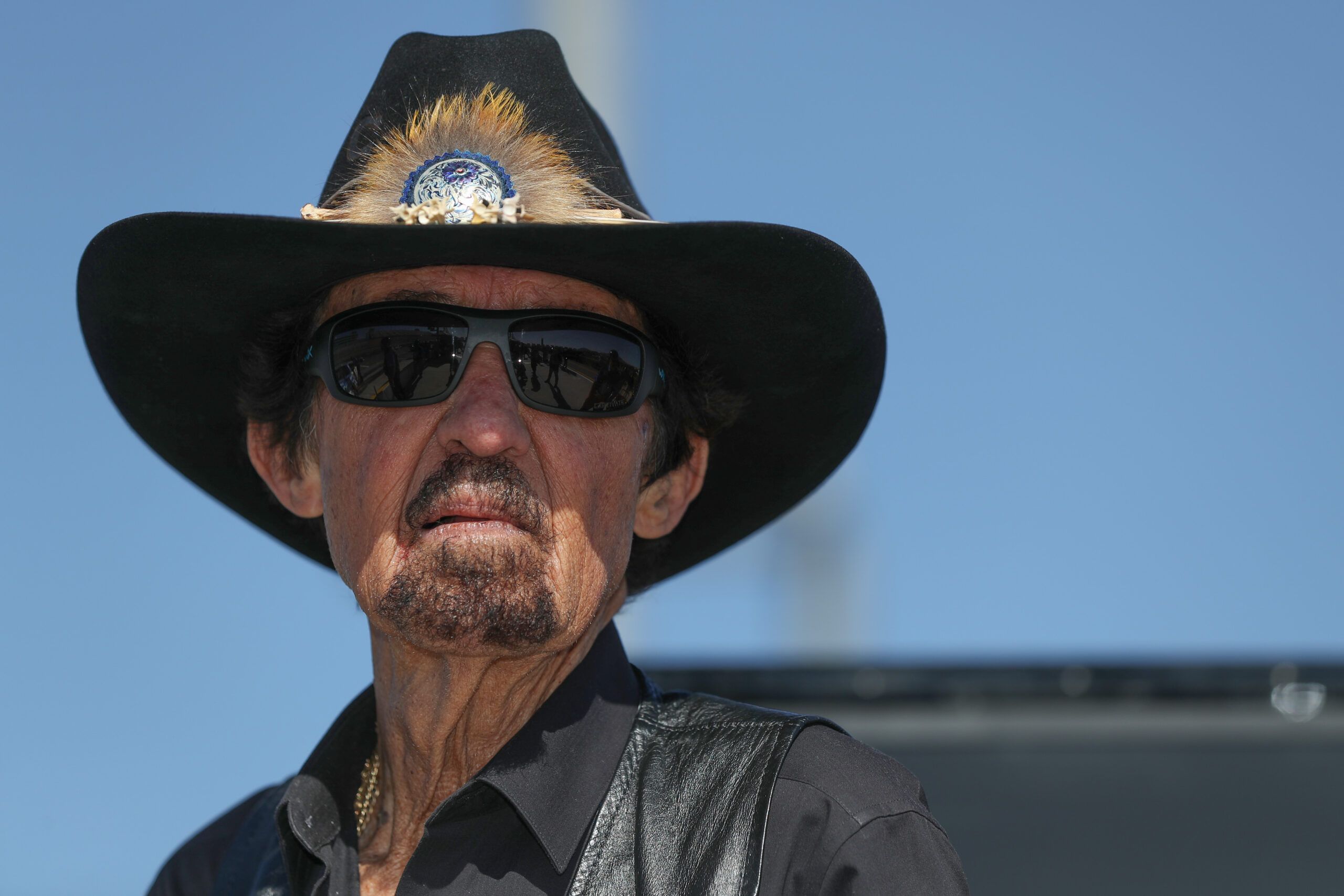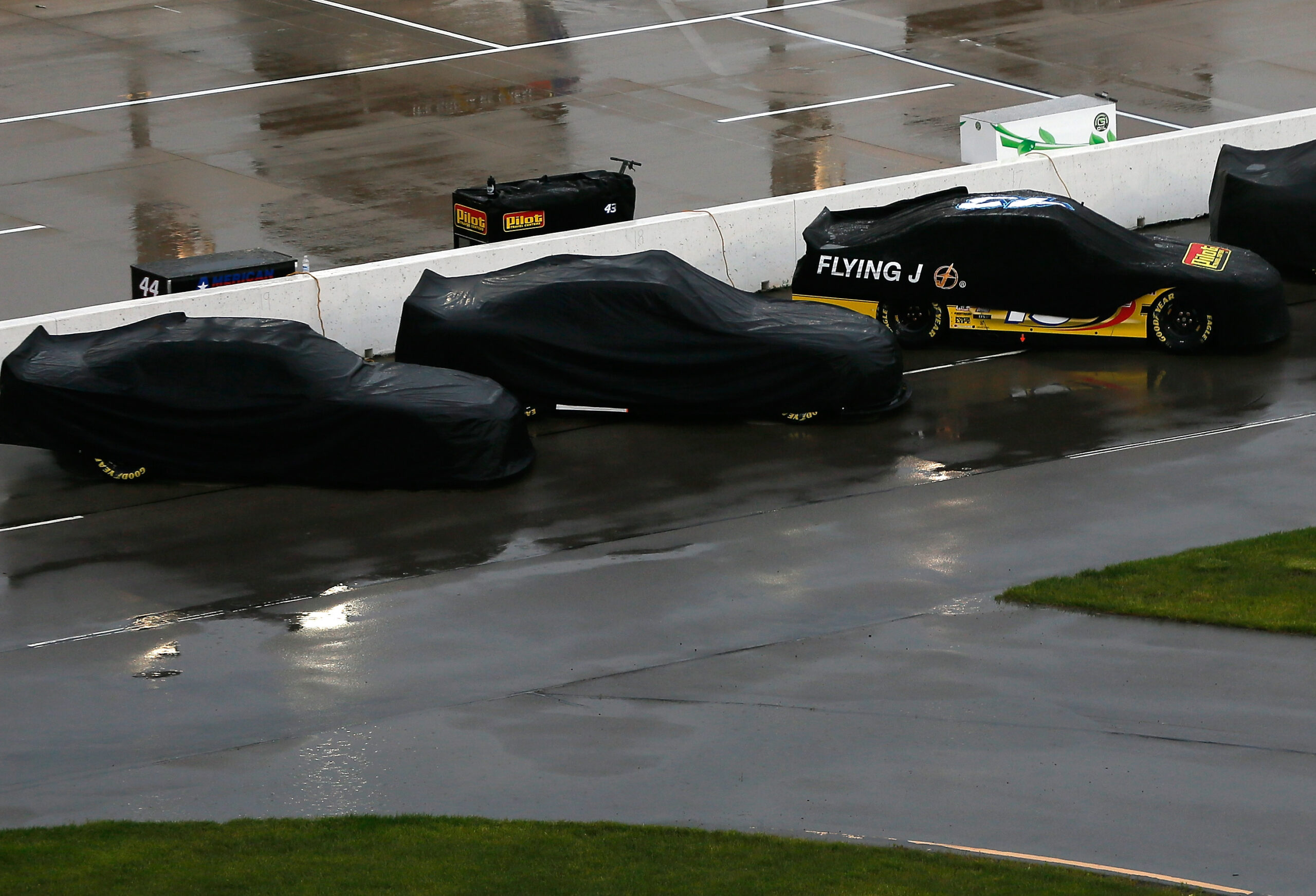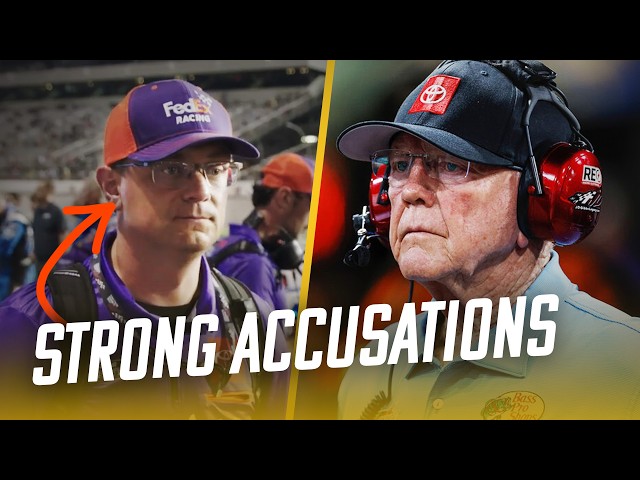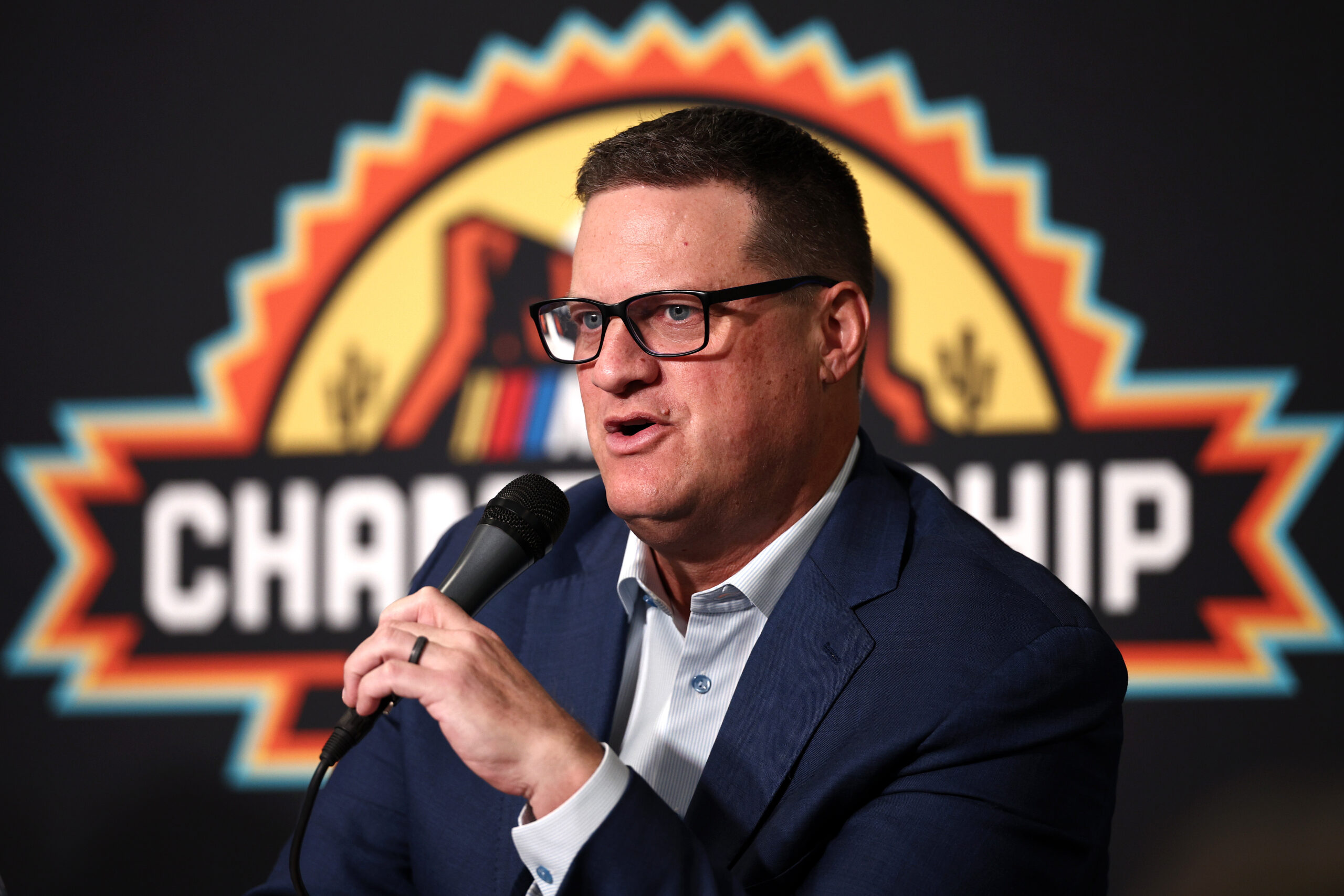
On October 9, 1983, Richard Petty won his 198th at Charlotte Motor Speedway in the Miller High Life 500. Four hours later, Ken Squier did a stand-up in the Charlotte Motor Speedway press box announcing Richard Petty’s car had a massively oversized engine and left side tires on the right side of the car. The result, a 104 point penalty and a $35,000 fine (roughly $105,000 in today’s money).
While Petty’s win stood, the penalty affected more than just that race or that season. It affected Petty Enterprises for years afterwards, and those effects are still being felt today. Of course, the fall of Petty Enterprises is far more complicated than one thing, but this penalty changed the trajectory of the organization.
This fine was a gut punch to the team, and it made a huge impact on the day-to-day operations of the team for the following season. Petty actually talked about this briefly in “The Day: 1984 Firecracker 400,” a FOX Sports documentary.
The fine meant that Petty Enterprises could no longer support two operations. Kyle Petty was just starting out his career, so Richard went out and found his own ride for the 1984 season. Richard won his final two races in 1984 with country music executive, Mike Curb.
While Petty Enterprises was generally in decline during the early 1980s, Richard was still fairly competitive. He finished fifth in the points in 1982 and fourth in the points in 1983. Kyle was not terrible either, with two top-15 points finishes in 1982 and 1983 as well.
In 1984, however, Kyle’s performance would decrease slightly, finishing in 16th in the standings. It was his worst points finish of his career, but, in fairness it’s not like he fell of a cliff. However, the lack of improvement meant either one of two things – either the team was stagnating or Kyle was stagnating.
To the surprise of some, in August of 1984, Kyle spoke to Debra Williams, in a piece archived by United Press International. In that piece, Kyle goes into depth about why he chose to leave his family’s race team. He discussed how he felt that him moving would take some pressure off of his family, but his final in the piece is very telling.
If I was 30 or older it would be real difficult. At 24, it’s not that difficult. I don’t know if its impatience or not being smart enough to be afraid to make a move like that. I could take the safe way and stay where I’m at and not have to worry. But you’ve got to make a sacrifice one place to make a gain somewhere else.
Kyle Petty
Obviously, Kyle felt that he could find better performance elsewhere. There was obviously no animosity between him and the team, but he did not think that his family’s race team could give him what he needed for his career.
By 1985, Kyle was at the Wood Brothers. How did things go from there.
In 1985, Kyle had the best season of his career up to that point, finishing ninth in the standings. He would go on to win eight races over the next few seasons as well. Sure, Kyle was not the greatest driver of all time, but he was a threat to win week-in and week-out for years afterwards.
What happened to the race team in 1985? They only ran four races as Richard was fulfilling his contract with Mike Curb. The fallout from the penalty had resulted in Petty Enterprises essentially being absent from the grid for a season.
Richard eventually returned to the team in 1986, but his skills had obviously declined. He did not win a single race in his final six full-time seasons, and had only one top-10 points finish in 1987. One can only wonder what if Petty Enterprises was competitive enough to keep Kyle?
They probably would have remained a two-car operation, and, if Kyle showed what he was capable of, the team could have continued to be solid. Instead of Richard ending his career as the lone driver, there would have been something in the future to build towards. Kyle leaving stopped that potential, and it set the team back for essentially a full season.
Would they have won a championship? Probably not, but Kyle was winning races and finishing in the top-10 in the standings while his father was finishing out his career. The team could have had more success in the late 1980s-early 1990s, but, instead, the team was continuing to decline rapidly.
Having Richard be the only driver for the team late in his career set the team back years. Instead of youthful drivers or crew members helping push the team into the modern era, the team was stuck in the past. Having someone like Kyle could have put a stop-gap on that, and, who knows what happens to the team from there?
The potential up-tick in performance could attract better drivers to the team beyond Richard’s retirement. It’s hard to say that the team would have captured the same success as Richard’s prime, but there could have been so much more success.
Obviously, the decline of Petty Enterprises is far more complicated than just one penalty, but that penalty marks the beginning of the true decline for the team. Since 1983, no one with a Petty-owned team has finished in the top-5 in the points standings. The best points finish came from Richard, eighth, in 1987.
Ever since then, only twice has someone finished in the top-10 in the points standings. Bobby Hamilton finished ninth in 1996, and Kasey Kahne finished 10th in 2009. The decline in performance for the team starts at one season, and it just continues.
There have been no true consistent peaks or valleys. It’s just been consistent mediocrity. Some good talent that was at Petty Enterprises/Petty GMS/Richard Petty Motorsports have also gone on to do great things after leaving the team.
The team’s crew chief throughout the 1990s, Robbie Loomis, went on to win a championship with Jeff Gordon in 2001. Kasey Kahne went on to have his highest points finish in 2012 with Hendrick Motorsports.
The reality is that the inciting incident for this decline was that penalty in Charlotte in 1983. That caused a decline in performance and a young driver with good potential to leave. These events caused things that set the team back years, and they have never full recovered.
That is why Legacy Motor Club is where they are right now. Years of mediocrity have caused Jimmie Johnson and Maury Gallagher to come in and essentially start over with Toyota next year. It all started at one place, Charlotte in 1983.

by Bryan Aguiar
Weather could play a major role in the NASCAR weekend at EchoPark Speedway, with current forecasts calling for a 40% chance of rain Saturday afternoon and increasing to 55% in the evening. While conditions are expected to improve, contingency plans are already in place in case races cannot be completed as scheduled
Forecast improving for Saturday, 40% rain 12-7pm, 55% after that. Contingency plans fluid so take this fwiw … in truck garage, the understanding is if both races ppd, tripleheader Sunday order would be O'Reilly-Cup-Truck. If one race ppd, then it is in the morning before Cup.
— Bob Pockrass (@bobpockrass) February 20, 2026
NASCAR has not announced any official schedule changes yet, as decisions will be based on how conditions develop in real time. With rain chances increasing through Saturday afternoon and evening, teams are preparing for multiple outcomes, and Sunday is expected to serve as the primary backup window if events can’t be completed as planned.
Conditions are constantly being monitored, but fans should be prepared for possible schedule adjustments throughout the weekend. We’ll keep you updated throughout the race weekend here on The Daily Downforce

by Bryan Aguiar
Just when things finally seemed to calm down in the NASCAR garage, a bombshell dropped. Joe Gibbs Racing is officially suing former competition director Chris Gabehart, and the allegations are serious. Power struggles, confidential data, secret photos, and a potential move to Spire Motorsports.
From competition department tension to an $8 million damages figure, this lawsuit could have major implications beyond just one team. Gabehart helped elevate Denny Hamlin back into championship form and played a key role in JGR’s recent success, which makes this split even more shocking. This preview only scratches the surface. The full breakdown dives into the timeline, the alleged evidence, and what this could mean for the Cup Series balance of power moving forward. Watch the full video to learn much more
Watch Also

by Bryan Aguiar
NASCAR President Steve O’Donnell says the Cup Series schedule is not guaranteed to remain at 36 races, and the sanctioning body is evaluating whether a different structure would make more sense.
Steve O'Donnell:"It’s worked for us, but I would not say this is the way it will always be. Is there a number of races that makes more sense? Could it be 30—or even more? Could we introduce midweek races and shorten the season? All of that is on the table."https://t.co/86umVWdn5h
— Adam Stern (@A_S12) February 20, 2026
Speaking about the long-term outlook, O’Donnell said everything from the total number of events to when they are held is under consideration.
“It’s worked for us, but I would not say this is the way it will always be. Is there a number of races that makes more sense? Could it be 30, or even more? Could we introduce midweek races and shorten the season? All of that is on the table.”
The Cup Series has run a 36-race points schedule for more than two decades, typically from February through November.
NASCAR’s current media rights deal spreads races across multiple broadcast, cable, and streaming partners, having been in place since 2025. Compared to the previous deal, far fewer races now air on traditional broadcast television, so fans have to follow the season across several networks and platforms, including FS1, USA, Prime Video, and TNT Sports. O’Donnell previously acknowledged that the transition led to a late-season dip in viewership as coverage has been on broadcast TV less often, and it clashes directly with the NFL.
O’Donnell says weekday races are an option if NASCAR wants to shorten the overall calendar without dramatically reducing the number of races. The sport last had midweek races during the 2020 season, when it was the first sport to return to action, at Darlington. During that time, NASCAR did multiple midweek races, including at Darlington, Charlotte, and Kansas, to compensate for the weeks missed during quarantine, and the audience showed up in TV ratings.
A shorter season could also reduce direct competition with football, which dominates the U.S. sports calendar each fall, while additional races would create more inventory for media partners.
Across sports, schedules are increasingly shaped by media strategy rather than tradition. The NFL, for example, has expanded its reach without drastically lengthening its season, adding standalone games on holidays, exclusive streaming packages, and international matchups to maximize value per game. The league also added a 17th regular-season game in 2021, its first expansion in decades, as part of a broader revenue push.
Other U.S. leagues are following similar paths. The NBA introduced an in-season tournament to create new broadcast inventory without extending the schedule, while MLB continues to sell national windows and streaming packages across its existing 162-game season.
In motorsports, Formula 1 has expanded the calendar itself. The series ran 21 races in 2021. 10 years earlier, it ran 19 races. And now it has a record-breaking 24-race schedule, despite being a global championship. Much of that growth is driven by hosting fees from cities and governments, as well as rising international demand, but drivers and the industry have already shown displeasure regarding the ever-growing schedule, deeming it too exhausting.
The shifts across sports accelerated drastically after the pandemic, when leagues became more dependent on media revenue and more willing to adjust calendars, formats, and distribution to match changing viewing habits. NASCAR, for example, rarely changed its calendar before 2020, but after the pandemic, it’s become one of the most diverse calendars in motorsports: racing on dirt, in stadiums, reviving old tracks, adding road courses, expanding internationally, and constantly changing its post-season race placements.
NASCAR has not announced any plans to alter the Cup schedule. O’Donnell’s comments indicate the organization is evaluating options as it plans future seasons under an evolving sports media environment.
What do you think? Should NASCAR have more, fewer, or the same number of races going forward? Would you like to see midweek races? Let us know what you think on Discord or X. Don’t forget that you can also follow us on Instagram, Facebook, and YouTube.